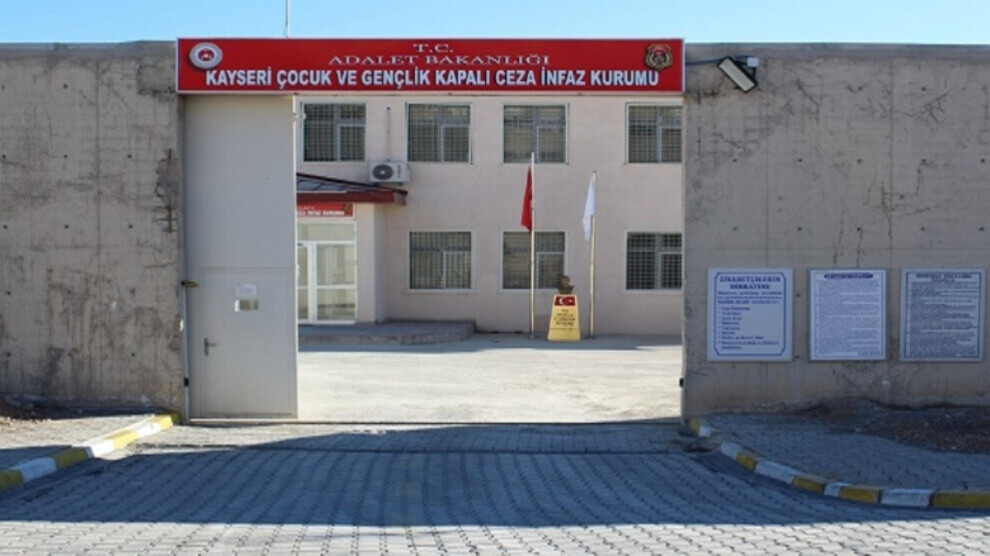Number of children with judicial record is increasing
According to TÜİK, there were 178,834 children with judicial records as of last year. The Ministry of Justice, however, reported the number as 211,946.
According to TÜİK, there were 178,834 children with judicial records as of last year. The Ministry of Justice, however, reported the number as 211,946.

According to the Turkish Statistical Institute (TÜİK), as of last year, there were 178,834 children with judicial records, while the Ministry of Justice reported the number as 211,946. According to the CHP (Republican People’s Party), the real figure is even higher; each day, 1,031 children end up as either perpetrators or victims.
When examining the data from TÜİK and the Ministry of Justice, it is seen that over the last five years, the number of children arrested or processed for crimes such as robbery and assault has approached nearly 2 million.
According to data announced by the Ministry of Justice in April 2025, there are 4,011 children in Turkish prisons. Children are held either in facilities designated for them or in children’s wards within adult prisons. According to the April 2025 data from the Civil Society Association in the Penal System (CİSST), the number of detained and convicted children stands at 2,576.
According to the latest figures from TÜİK, as of 2024, there were records for 178,834 children nationwide categorized as “children driven to crime.” When examined over certain years, it is evident that this number has been steadily rising. The Ministry of Justice, on the other hand, announced that in 2024, the number of children with criminal files was 211,946. Of these cases, 63,712 resulted in convictions, including 4,386 girls.
CHP refutes official figures
Beyond the data announced by the Ministry of Justice and TÜİK, a study commissioned by the CHP covering just a five-year period (2017–2021) found that 5,393,325 children had records with judicial authorities. In 2021 alone, 499,319 children were apprehended on allegations of committing a crime. Robbery and assault emerged as the most common offenses.
When reviewing data from both TÜİK and the Ministry of Justice, it appears that in the last five years, nearly 2 million children were arrested or subjected to judicial proceedings for robbery and assault. In recent years, charges of “violation of bodily freedom” have also become prominent among crimes involving children.
Another striking point in the CHP report is this: every day, 1,031 children—or 55 children every hour—find themselves before judicial authorities as either perpetrators or victims.
Situation in prisons worsening
Juvenile prisons or reformatory institutions almost entirely lack any rehabilitative provisions for children. Predominantly, children are sent to L-type prisons organized in a dormitory system. A child staying with a certain number of peers in a dorm faces peer bullying, sexual harassment, and insults.
For a child entering a new prison, the only option is to follow the rules set by the inmate who has been there the longest and is known as the “dorm boss.” Forced to live by these rules, enforced by someone who also acts as an intermediary with the administration, prison becomes nothing short of a new torture center for the child.
Bullying, harassment, pressure
A child who was released after spending two months in prison and requested anonymity for security reasons shared the following: "Actually, the torture and pressure start the moment you enter prison. The guards treat you badly, insult you, humiliate you. When you’re moved to the dorm, this time you get humiliated by the dorm boss. The guards usually give you a dirty bed, pillow, and blanket. Wherever the person in charge of the dorm puts you, you have to sleep there.
If you don’t have money, you can’t buy anything at all. In fact, you can’t do anything, because everything depends on whether you have money. You can’t get a phone card, so you can’t talk to your family. You can’t even meet your basic hygiene needs from the canteen.
If you are younger, the bullying gets worse. They make you clean the toilets, clean the common areas, do chores. Apart from this, sexual harassment is very common in children’s prisons. Even though it is not often spoken about, the guards know it. Inside, whoever is older or stronger, whatever they say, you have to do.
Having money or being able to buy things from the canteen is not enough by itself, because then you also have to protect your belongings. Even your water can get stolen while you sleep. So you have to be vigilant even when you’re asleep."